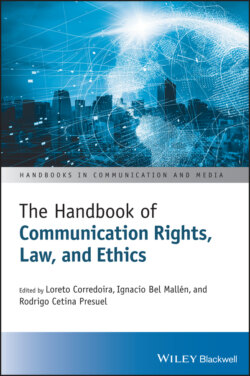Читать книгу The Handbook of Communication Rights, Law, and Ethics - Группа авторов - Страница 23
2 Dignity, a Revolutionary Principle in a Cosmopolitan Society
ОглавлениеJavier Gomá Lanzón
Dignity is the most revolutionary concept to come out of the twentieth century. It is endowed with such transforming power that the mere mention of it, as if it were a magic word, has been enough to overcome enormous obstacles that have held back the moral progress of humanity. In the past few years, it has advanced dramatically. And yet, in spite of the extraordinary influence of this concept, philosophy, strangely enough, has simply ignored it for the last two centuries. It has never been a subject of philosophical reflection.
It might be said that this omission is strange because this concept escapes the boundaries of philosophy and is present in innumerable aspects of life, including many different legal contexts. Indeed, an in-depth discussion of it as a philosophical concept is particularly pertinent for a volume that focuses on the universalization of rights. For dignity, in addition to being the foundation of equality, is a sine qua non for the enjoyment of freedom. And the concept was incorporated in twentieth-century international law’s most important texts. It can be found, for example, in the Preamble of the Charter of the United Nations (1946), the Preamble and Article 1 of the Universal Declaration of Human Rights (1948), the Preamble and Article 1 of the International Convention of Civil and Political Rights (1966), and the Preamble and Article 1 of the Charter of Fundamental Rights of the European Union (2002).
In this book, authors such as Corredoira, Bel, and Abad analyze the main international documents that, in the context of communication and the exercise of freedoms, have inspired its subtitle: Seeking Universality, Equality, Freedom and Dignity.
Dignity is the inspiration of countless ethical debates, such as those that arise in the field of bioethics (abortion, euthanasia, genetic manipulation, and cloning). Among many others, it is at the origin of social causes like trade unionism, feminism, or animalism. And, as recently as the present century, it triggered the social movement of the indignados (the indignant), though those involved felt no need to define, even in simple terms, what it was that provoked their wrath and brought them onto the streets in protest.
Schopenhauer summarily dismissed the Kantian concept of dignity and, in doing so, set in motion a tendency that has dominated the world of philosophy from his day to ours and either ignores or disdains the notion. A good example of the former (ignoring the subject) is the Diccionario de filosofía by Ferrater Mora (2009), which makes no mention of the term throughout its four volumes. Neither does the more recent and much more extensive (2800 articles) Routledge Encyclopedia of Philosophy (Craig 2000), which is even more surprising. As far as disdain is concerned, examples abound in both the juridical and the bioethical fields, the most eloquent of which could be the strident title of an article which Steven Pinker published in 2008: “The Stupidity of Dignity.”
Years, decades, even centuries go by and dignity continues to be ignored or seen as hollow and lacking any theoretical prestige. Though there has been a certain revival of interest in the concept of dignity over the past decade, particularly in a historical or applied context, it still remains to be defined and is still untouched by philosophical thought.
Perhaps this persistent omission is due to some characteristic that is inherent in the concept and which, if it is not allowed for, makes it unpalatable for philosophers. Petrarch, a fourteenth-century Latinist and humanist, refers to this elusive nature of dignity when he reports that, even in his times, writings on the misery of the world proliferated but on the subject of dignity there was only one. To explain this imbalance, he argued that knowledge of the misery in the world did not require special study; it was so widespread and abundant that it was simply enough to open your eyes. Dignity, on the other hand, was much less obvious and required arduous speculative study, carried out in the face of resistance to the natural tendency and lacking a tradition on which it could be founded:
I do not deny that the misery of the human condition is great and of many classes and has been wept over in many a book; but if you look in the other direction, you will see many things that make it joyful and blissful; yet, if I am not mistaken, no one has written about this and there are some who began but desisted because it seemed to them that they had chosen a difficult subject, which was dry and contrary to what others had written, and in any event more arduous than they had expected; because human misery is so great that it is clearly manifest to all, but human happiness is so small and concealed that it is necessary to dig deep in order to show it to those who do not believe. (Petrarch 1978, pp. 460–461)
